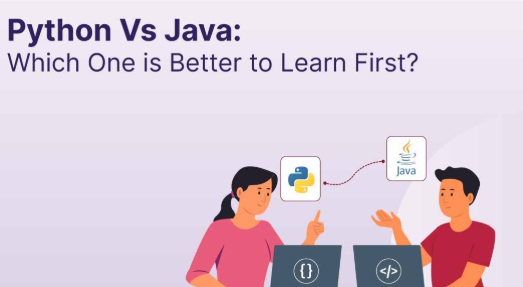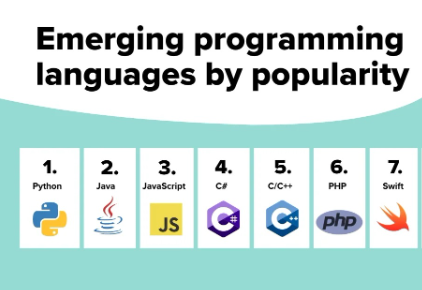
Java vs Python | Which One Should You Learn First?
If you’re starting your programming journey, two languages you’ll hear about a lot are Java and Python. Both are popular, powerful, and used in real-world applications—but they serve different goals and learning styles.
So… which one should you learn first in 2025?
Let’s break it down based on syntax, career paths, learning curve, and more—without confusing tech jargon.
Python: The Friendly Language
Python is often described as a “beginner’s dream language.” Why?
- Clean and simple syntax (it looks like English)
- Widely used in data science, web development, automation, and AI
- Tons of learning resources and a helpful community
Here’s what Python code looks like:
print(“Hello, world!”)
Easy to write, easy to read.
Java: The Enterprise Powerhouse
Java has been a backbone of big tech systems for over two decades. It’s known for:
- Being object-oriented, robust, and platform-independent
- Used in Android app development, enterprise software, and banking systems
- A bit more verbose and structured than Python
Java example:
public class HelloWorld {
public static void main(String[] args) {
System.out.println(“Hello, world!”);
}
}
More to type, but more control and structure.
Learning Curve: Python vs Java
| Feature | Python | Java |
| Syntax Simplicity | ✅ Very easy to learn | ❌ More complex and verbose |
| Community Support | ✅ Huge and beginner-friendly | ✅ Also large and professional |
| Compilation | ✅ Interpreted | ✅ Compiled (needs JVM) |
| Speed of Writing Code | ✅ Quick and short | ❌ Slower due to boilerplate |
| Error Handling | ✅ Easier to debug | ❌ More strict and technical |
Related: Low-Level vs High-Level Languages Explained
Career Opportunities
Python Careers
- Data Scientist / Analyst
- Machine Learning Engineer
- Web Developer (using Django or Flask)
- Automation / Scripting Expert
- Cybersecurity Analyst
Java Careers
- Android App Developer
- Backend Developer (Spring Framework)
- Software Engineer (Enterprises & Banks)
- Big Data Engineer (Hadoop, Spark with Java)
- Cloud Developer
Explore: Top 5 Programming Languages for Beginners in 2025
Python vs Java – Real-World Usage
| Use Case | Python | Java |
| AI / Machine Learning | ✅ Yes (TensorFlow, PyTorch) | ❌ Less common |
| Android Development | ❌ Not ideal | ✅ Primary language |
| Web Development | ✅ (Django, Flask) | ✅ (Spring, JSP) |
| Enterprise Applications | ❌ Less common | ✅ Preferred in large systems |
| Learning to Code | ✅ Great first language | ✅ Good for CS fundamentals |
Community and Ecosystem
- Python has a massive beginner-friendly community, perfect for self-learners.
- Java has a huge developer base in large companies and open-source projects.
Both have extensive libraries, documentation, and active forums.
Related: What Is a Programming Language?
Pros and Cons
Python Pros
- Beginner-friendly
- Short, readable code
- Great for AI, web, scripting
Python Cons
- Slower execution speed
- Not ideal for mobile or large-scale enterprise apps
Java Pros
- High performance
- Platform-independent (runs on JVM)
- Great for Android and backend systems
Java Cons
- Verbose syntax
- Steeper learning curve
Which One Should You Learn First?
Choose Python if:
- You want to get started fast
- You’re interested in data science, AI, or automation
- You prefer writing clean, minimal code
- You’re completely new to programming
Choose Java if:
- You want to build Android apps
- You’re aiming for corporate or backend development roles
- You’re studying Computer Science academically
- You enjoy structured, object-oriented design
Can’t decide? Start with Python, then transition to Java later for deeper concepts.
Final Verdict
Both Java and Python are excellent choices for beginners—but for different reasons.
| Goal | Recommended Language |
| Learn to code quickly | Python |
| Data Science / AI | Python |
| Android or Enterprise Apps | Java |
| Deep understanding of OOP | Java |
| Build web projects easily | Python |


